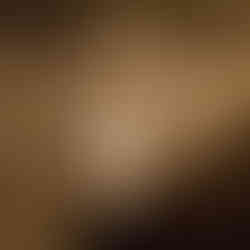Is PARIS the necropolis of optimism?
- Parisian Edit
- Jan 28, 2021
- 3 min read
Updated: Jul 18, 2022
The Paris Catacombs
Let's assume that by the third decade of this century, we might have wrapped our heads around this covid fiasco enough that the world is relatively disease-free, and safe to travel. And so, you might find yourself lusting for a getaway that barely a decade prior you would only have qualified for had you been 1. a "priority" tennis player en route to Oz for the Australian open, or 2. a being with such disregard for public safety that you should arguably be charged with the attempted extermination of the clinically compromised, and every granny the world over. But by this point, the only pandemic is the terminal stupidity that made itself known during the first one and now you're looking for a holiday. Having spent the best part of a decade shuffling between the television and the fridge, a tidbit of luxury is as attractive to you now as wings might be to a pig in an abattoir.
You simply must get away. Country breaks are old hat and feverishly overdone during the 2020s, so you're looking for an urban escape, now that crowds are legal. What springs to mind as the paragon of a luxurious city break? It could only be Paris. And how has my cherished adopted home achieved this "always-a-good-idea" reputation, in spite of its knack for burning holes in the deepest of pockets, and the inhospitable notoriety of its inhabitants? Film and more recently television depictions (no doubt to the glee of the French tourism board) have marked Paris firmly on the to-do list of many world travellers, hoping for a glimpse of the most romantic city in the world, this Shangri-la for lovers and pickpockets.
Indeed, so piercing is the popular romanticisation of this city that there is even an infamous psychological condition bearing its name, which describes a woeful list of symptoms resulting from the bitter disappointment of realising that Paris too has its fair share of dodgy corners and architectural monstrosities. Glamourised portrayals in art and choice snippets in films have set an unreasonable and unattainable precedent for modern-day Paris. She has just as many wrinkles as the ageing Hollywood population should have, but the exported image is the result of a rather more convincing airbrushing.
So Paris is a bit of a myth, to the outside world. Globally dubbed the "City of Light" or the "City of Love", the nicknames do nothing to challenge the façade. Ironically, when trying to decide on a name for this magazine, I suggested Lutèce*, until it was pointed out that google translate sometimes likes to mis-translate this as "struggle". I think that "The City of Struggle" might, in fact, be a more apt name for the place. Paris isn't for everyone; it can be a particularly unforgiving place if you're highly strung and dislike stressful interactions with anyone who sits at a desk. Bureaucracy is a national sport here and giving you the run-around with lashings of thinly-veiled condescension is a sadistic pleasure that fuels most administrative workers. Their ostensible politeness makes this all the more infuriating. Judgement, steely nerves, and equally artificial flattery will go a long way to ensuring you win these battles.
There is however an anomaly to my assertion that Paris is perhaps a bad fit for the happy-go-lucky type of person. And that is the baffling number of Americans who live here. My only explanation for this phenomenon is that with their nauseating optimism, they are blinded by delusion and buy into the veneer completely. I love Paris, and I can't think of anywhere I'd rather be. But then again, I eloped to Paris with my cynicism. I made no assumptions about the place other than that it was dangerous, as my provincial English parents had reiterated to me many times before the move. As it turns out I was rather surprised not to be accosted on the streets by an overzealous French pervert. I suppose the lesson is: you can't be disappointed if you had no expectations. Consequently, pessimistic expats and native cynics feel right at home. Assuming that the capital city of most European countries is home to the less diluted stereotypes of a nation, I'll leave you with a quote from Sylvain Tesson which I think sums up this point rather well: "La France est un paradis peuplé de gens qui se croient en enfer" France is a paradise populated with people who believe they're in hell.
* The frenchified form of Lutetia, which was the Latin name for the Roman city that stood where Paris is now.









Comments